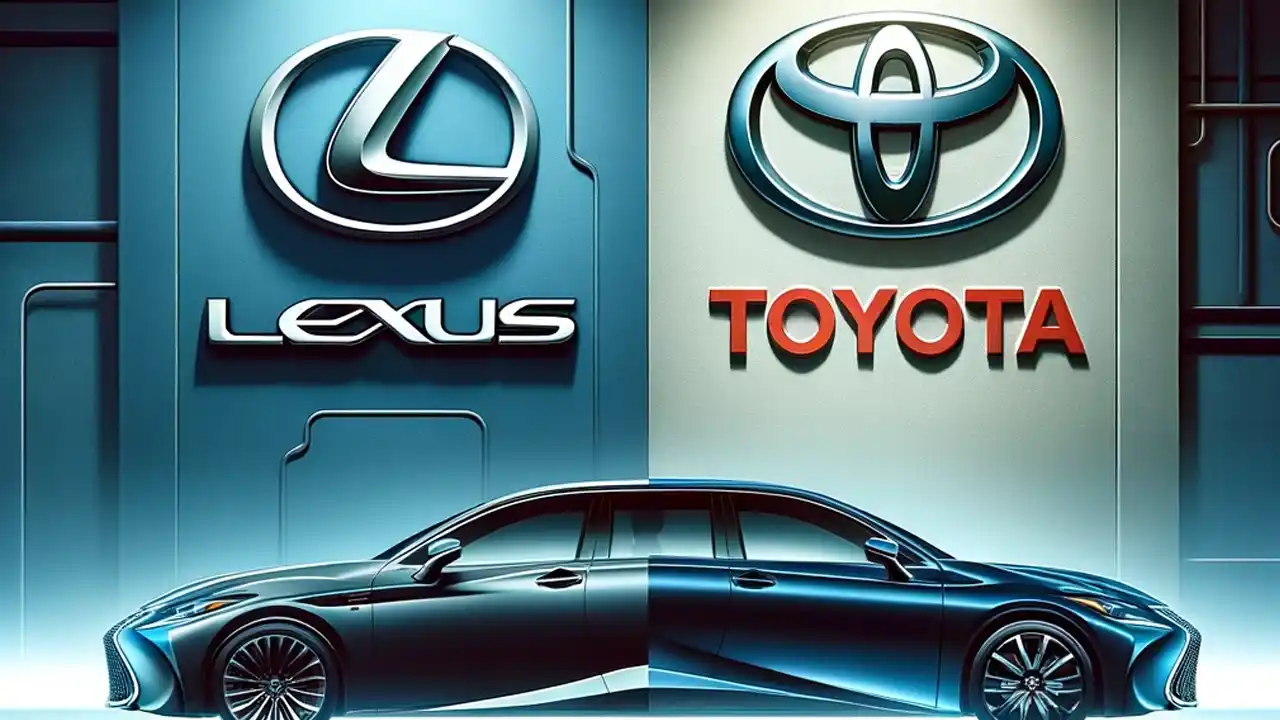Home »
Toyota and Lexus are well-known companies with impacts on the global auto market. While they share a close relationship, there are distinct differences between the two companies. Examining their corporate structures, brand positioning, histories, and product offers, we will investigate the relationship between Lexus and Toyota in this in-depth research.
History and Origins:
Toyota Motor Corporation, founded in 1937 by Kiichiro Toyoda, is a Japanese multinational automotive manufacturer headquartered in Toyota City, Japan. Initially, Toyota focused on producing affordable and reliable vehicles for the mass market, establishing itself as a leading player in the automotive industry.
Conversely, the premium automobile business of Toyota Motor Corporation, known as Lexus, was founded in 1989. The creation of Lexus was a strategic move by Toyota to enter the premium automotive segment and compete with established luxury brands such as Mercedes-Benz, BMW, and Audi. The launch of Lexus marked Toyota’s foray into the luxury market and represented a significant expansion of its product portfolio.
Corporate Structure:
Toyota Motor Corporation, the company, is in charge of overseeing several departments and subsidiaries, including Lexus. Despite being a distinct business unit within Toyota, Lexus enjoys the support, knowledge, and production capacities. This corporate structure allows Lexus to leverage Toyota’s extensive research and development capabilities, supply chain network, and production facilities while maintaining its distinct identity and brand image.
Brand Positioning:
One of the differences between Lexus and Toyota lies in their brand positioning and target markets. Toyota is positioned as a mainstream automotive brand, catering to a broad audience with several vehicles, including sedans, SUVs, trucks, and hybrids. Toyota vehicles are known for their reliability, affordability, and practicality, appealing to consumers seeking value and dependability in their automotive purchases.
In contrast, Lexus is positioned as a luxury automotive brand, targeting affluent consumers who prioritize premium features, performance, and luxury amenities in their vehicles. Lexus vehicles offer a superior driving experience, incorporating advanced technology, luxurious interiors, and refined styling. The Lexus brand is synonymous with elegance, sophistication, and exclusivity, appealing to discerning buyers seeking higher refinement and prestige.
Product Offerings:
Toyota offers a diverse lineup of vehicles across various segments, from compact cars to full-size trucks. The Toyota lineup includes popular models such as the Corolla, Camry, RAV4, Highlander, Tacoma, and Prius. In addition to conventional gasoline-powered vehicles, Toyota is a pioneer in hybrid and electric vehicle technology, with models such as the Prius and RAV4 Hybrid leading in eco-friendly transportation.
- Audi GT50 Concept: A Loud Reminder of Why Car Enthusiasts Fell in Love With Audi
- Nearly 30% of UK Drivers Believe Car Tax Should Be Based on Mileage — Survey
- Why Planes and Boats Escaped the Luxury Tax But Cars Didn’t
- Australia’s Headlight Confusion: Authorities Warn Drivers After Viral $250 Headlight Rule Goes Wild Online
- 2025 Hyundai Venue Facelift Launched in India – Full Details, Variants, and Price
Conversely, Lexus specializes in high-end automobiles that provide outstanding comfort, performance, and refinement. The Lexus lineup includes luxury sedans, SUVs, coupes, and convertibles, with models such as the ES, LS, RX, NX, and LC representing the brand’s commitment to luxury and innovation. Lexus vehicles have advanced features and amenities, including premium leather upholstery, high-end audio systems, advanced driver assistance systems, and cutting-edge infotainment technology.
Shared Technologies and Platforms:
Despite their differences in brand positioning, Lexus and Toyota share technologies, platforms, and components across their respective vehicle lineups. This synergy allows both brands to benefit from economies of scale, streamline development processes, and enhance overall product quality. For example, Toyota’s Hybrid Synergy Drive system, initially introduced in the Prius, has been adapted for use in Lexus hybrid vehicles, offering improved fuel efficiency and performance.
Furthermore, Lexus and Toyota collaborate on research and development initiatives, sharing expertise in areas such as automotive engineering, design, and innovation. This collaborative approach enables both brands to stay at the forefront of technological advancements and deliver cutting-edge vehicles that meet the evolving needs of consumers.
Conclusion:
In conclusion, Lexus and Toyota are closely related entities within the automotive industry, with Toyota serving as the parent company and Lexus operating as its luxury division. While Toyota focuses on mainstream vehicles known for their reliability and affordability, Lexus specializes in luxury vehicles that offer superior performance, comfort, and refinement. Notwithstanding their distinctions, both companies can provide premium automobiles that appeal to a spectrum of customers because they share resources, platforms, and technology. Whether you’re in the market for a practical family sedan or a luxurious premium SUV, Toyota and Lexus offer compelling options that reflect their respective brand identities and philosophies.
